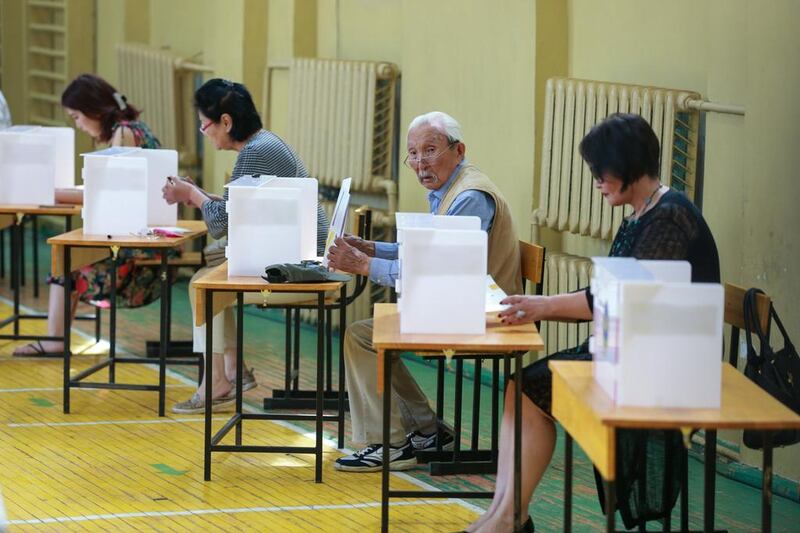ULAANBAATAR // Mongolians cast their votes on Monday in a presidential election seen as a referendum on the government’s economic recovery plans and China’s role in the country, but some disgruntled voters left their ballot papers blank in protest.
The election has been run amid corruption allegations against all three candidates vying for the presidency of Mongolia, a remote, resource-rich land known as the birthplace of Mongol emperor Genghis Khan.
“I really wanted to participate, and do something, but I didn’t want to vote for any of the three candidates,” Khishigjargal, a 22-year old translator, said after leaving her ballot blank at a polling station in the capital Ulaanbaatar.
“In the end, if enough people vote blank there could be another election,” she said.
Most voters expect a two-horse race between the ruling Mongolian People’s Party (MPP) candidate Miyeegombo Enkhbold, an investment-friendly career politician, and former martial arts star and resource nationalist Khaltmaa Battulga of the opposition Democratic Party.
But Sainkhuu Ganbaatar of the breakaway Mongolian People’s Revolutionary Party could win enough votes to force a second round in two weeks.
“The most important issues to me are the country’s prosperity, the people’s prosperity, and pollution,” Osorjamiin Ereenetuvshin, a 66-year old herder, said near a polling booth in a yurt outside Ulaanbaatar.
Mongolia is a parliamentary democracy and elected a new government last year. The presidential vote will serve as a crucial barometer of public opinion as the ruling MPP tries to steer the country out of an economic crisis.
Once Asia’s fastest growing economy, Mongolia has seen foreign investment and commodity export earnings collapse, leaving it struggling to pay debts following years of generous government spending. The new government secured a $5.5 billion (Dh20.2bn) bailout from the International Monetary Fund in May after implementing austerity measures.
All three presidential candidates have promised to pull the country out of its current crisis, restore the stagnant economy to its former “boom” status, and reassess ties with neighbours, including China.
* Reuters





